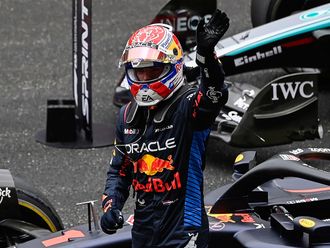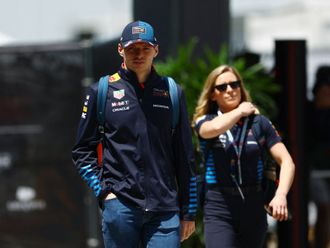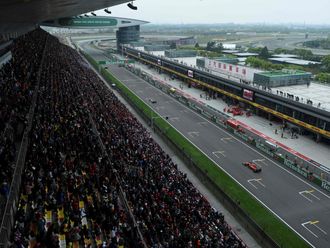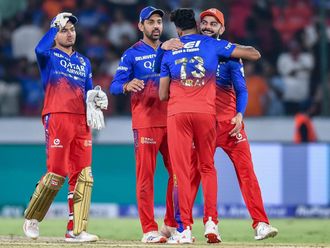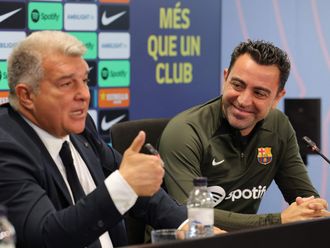Formula One’s rulemakers, anxious to liven up a spectacle that last season, in many fans’ eyes, had dulled as a one-sided title take-over, are to double the points for the winner of the final grand prix of 2014.
At its Paris headquarters, the FIA, the sport’s governing body, insisted its aim is ‘to maximise focus on the championship until the end of the campaign’.
And they have opted to give the victor in the Abu Dhabi finale in November 50 points, rather than the customary 25.
Mmmmmm... I am not too sure that will make much of a difference to the outcome of the title chase, and most certainly not if there is anywhere near a repeat of this season’s monopoly by Red Bull’s Sebastian Vettel, who clinched a fourth world title.
If the well-intentioned FIA does not want a repeat of Vettel’s 2013 mastery, it could possibly be avoided if they doubled the points for the entire second half of the season.
Vettel, a real genius on the move, had the championship wrapped up well before the final showdown in Brazil by chalking up a record-busting tally of nine victories in a row, and 13 for the season.
His brilliant one-man show was in many watchers’ opinions somewhat of an anti-climax, but a doubling up of the points on offer to be first under the chequered flag would not have made one jot of difference to his virtually unchallenged run-in to the title.
Even Red Bull backroom legend Adrian Newey, the absolute master of design, admits the 2013 season was ‘slightly boring’ with a drab wind down.
The upcoming campaign will, therefore, need to be a neck-and-neck close call of a finish for there to be any advantage gained from a doubling-up of the winner’s points.
The FIA’s desperation to ensure the season goes down to the wire with several contestants all in with a chance of claiming the crown is perhaps a wee bit forlorn in the light of the new points award.
It might have been more interesting if the FIA had gone along with F1 mastermind Bernie Ecclestone’s long-standing preference to dish out extra points for the blue-riband clashes like Monaco, Spa in Belgium, and the Italian Grand Prix at Monza.
And an even more solid scheme might be to introduce, as mooted but not scheduled, a budget cap that could curb the mega-spenders buying their success against the financial strugglers, who too often have their backs to the wall.
I am heartened to note that, as a check on the spiralling costs the teams face, the FIA is to set up a working group to assess how to slash the expenditure the mega-wealthy top teams spend to buy victory, or the shaky also-rans put together just to guarantee survival.
— The writer is a motorsport expert based in the UK


